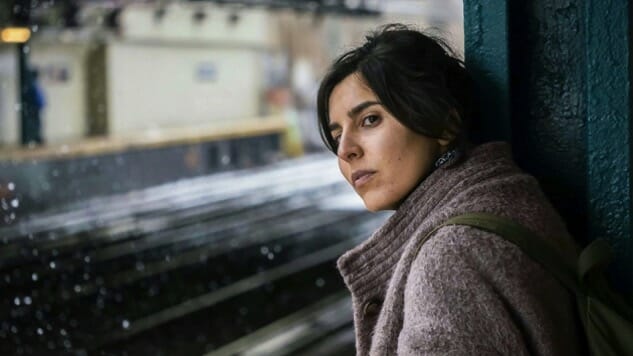Hermia & Helena

Near the start of Hermia & Helena, Argentinian writer-director Matías Piñeiro lets his camera’s gaze drift across the sky, focusing on one character in the distance before eventually moving toward someone else in the foreground. Much of what’s enrapturing about this deceptive wisp of a film is contained in this gentle flourish. Gracefully traveling between characters while giving off a sense of elusive, carefree profundity, Hermia & Helena isn’t quite a comedy or a romance or a drama. But it sure is lovely.
Placing second in last year’s Film Comment critics’ poll of 2016’s best undistributed films, the movie most closely follows Camila (Agustina Muñoz), who leaves Buenos Aires for a university fellowship in New York. When she arrives, she’ll take over the apartment of her friend Carmen (María Villar), who previously lived in New York for the same fellowship. Both of them are working on translations of A Midsummer Night’s Dream, and fans of that Shakespeare comedy will know that Hermia and Helena were the play’s central characters, each struggling with romantic woes. Camila and Carmen are the stand-ins for Piñeiro, who in his previous films, such as 2012’s Viola, also used the Bard’s work as an inspiration for his own. But intimate familiarity with A Midsummer Night’s Dream is not a prerequisite for being swept away by Hermia & Helena. Shakespeare is merely one touchstone—alongside filmmakers like Yasujir? Ozu, Eric Rohmer, Hong Sang-soo and Woody Allen—in a story that ultimately feels like its own wistful concoction.
Though jumping around chronologically, the film devotes most of its energy to Camila’s U.S. adventures—none of which are momentous, but possess such precise observations that their seeming simplicity resonates much deeper than expected. The young woman receives postcards from a friend of Carmen’s (Mati Diop) who’s on her way to New York, having no idea that Carmen has already flown back to Argentina. Despite having a boyfriend back home, Camila falls into a relationship with Lukas (Keith Poulson) while also courting an aspiring filmmaker (Dustin Guy Defa) working on a short that—in one of Hermia & Helena’s amusing digressions—we see in its entirety. But perhaps most meaningful for Camila is an anxious reunion with her long-lost birth father (The Unspeakable Truth filmmaker Dan Sallitt), who’s as nervous to meet her as she him.
Muñoz, who appeared in Viola and Piñeiro’s follow-up film, The Princess of France, has the perfect amount of what can only be described as sanguine mysteriousness for the role. Camila isn’t scheming or hiding something, but whether speaking in English or Spanish, she’s not someone who shares precisely what she’s thinking. And so her every action is pleasingly enigmatic.
-

-

-

-

-

-

-

-

-

-

-

-

-

-

-

-

-

-

-

-

-

-

-

-

-

-

-

-

-

-

-

-

-

-

-

-

-

-

-

-








































